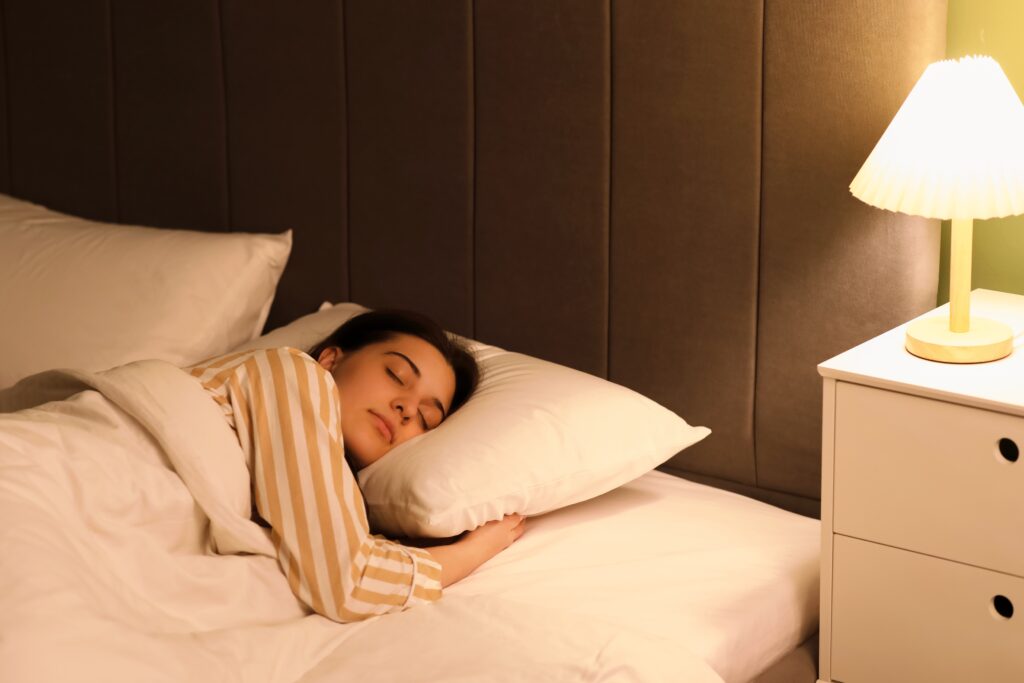Do you struggle to sleep at night? Your daytime habits might be the reason. What you do during the day can directly impact how well you rest. Fortunately, adopting simple strategies for better sleep, such as relaxing before bed, improving your diet, or getting sunlight, can make a big difference. In this guide, we’ll explore five effective strategies for better sleep that are easy to implement and beneficial for everyone.
Mind Your Iron Levels
Iron deficiency affects about one in three people globally. Groups at higher risk include women of reproductive age, infants, vegetarians, athletes, and frequent blood donors. Low iron levels can lead to fatigue, restlessness, and disrupted sleep.
If you often feel tired despite good sleep habits, check your iron levels with a doctor. Tests for ferritin or hemoglobin can identify deficiencies. Boosting your iron intake may help.
Heme iron sources, like meat and eggs, are easier for the body to absorb. Non-heme sources, such as beans and leafy greens, pair well with vitamin C-rich foods for better absorption. A balanced diet helps maintain optimal iron levels and supports restful sleep.
Eat More Vegetables
Eating more fruits and vegetables has been linked to better sleep quality. Studies show that diets rich in whole foods, like the Mediterranean diet, support consistent and improved sleep. This diet emphasizes vegetables, fruits, whole grains, nuts, and low-fat dairy.
Poor sleep has been associated with lower intake of essential nutrients like iron, magnesium, and vitamin C. On the other hand, better nutrition may directly enhance the quality of deep sleep.
Research has shown that small dietary changes can make a difference. One study found that increasing fruit and vegetable intake helped women improve insomnia symptoms and fall asleep faster. Similar results were observed in children consuming green vegetables regularly. The vitamins in these foods, especially A and C, contribute to better rest.
Get Moving
Regular physical activity supports longer, better sleep. You don’t need intense workouts for benefits—moderate exercise, even in short bursts, can help.
A 2015 meta-analysis of 66 studies revealed that exercising a few times a week improves sleep quality, especially for those with sleep issues. Even light activities for 10 minutes daily can have a positive effect.
Exercising in the evening doesn’t have to disrupt your sleep. Research shows it’s safe to work out up to two hours before bedtime. Besides improving sleep, exercise makes people feel more refreshed and energized, regardless of how well they actually slept.
Cut Back on Alcohol and Tobacco
Alcohol and tobacco disrupt sleep quality. Smoking is linked to difficulty falling asleep and poor restorative sleep, while drinking interferes with REM sleep and circadian rhythms.
Even a single drink can reduce the quality of sleep, leading to waking during the night and less overall rest. Long-term drinking habits can exacerbate these effects, increasing the risk of insomnia and sleep apnea. Reducing or eliminating these substances can help you feel more rested.
Don’t Skip Breakfast
Eating breakfast can boost alertness and reduce fatigue. Studies show that breakfast improves memory, concentration, and mental sharpness in both adults and children.
Consistent meal times also play a role. Irregular eating habits are linked to increased fatigue, likely due to disrupted circadian rhythms.
If you’re feeling tired, a morning meal like eggs or oatmeal can be a simple way to feel more energized and ready for the day.
Focusing on daytime habits, from nutrition to exercise, can transform your sleep and overall energy. Try these strategies for better sleep that will help you to wake up feeling refreshed.
